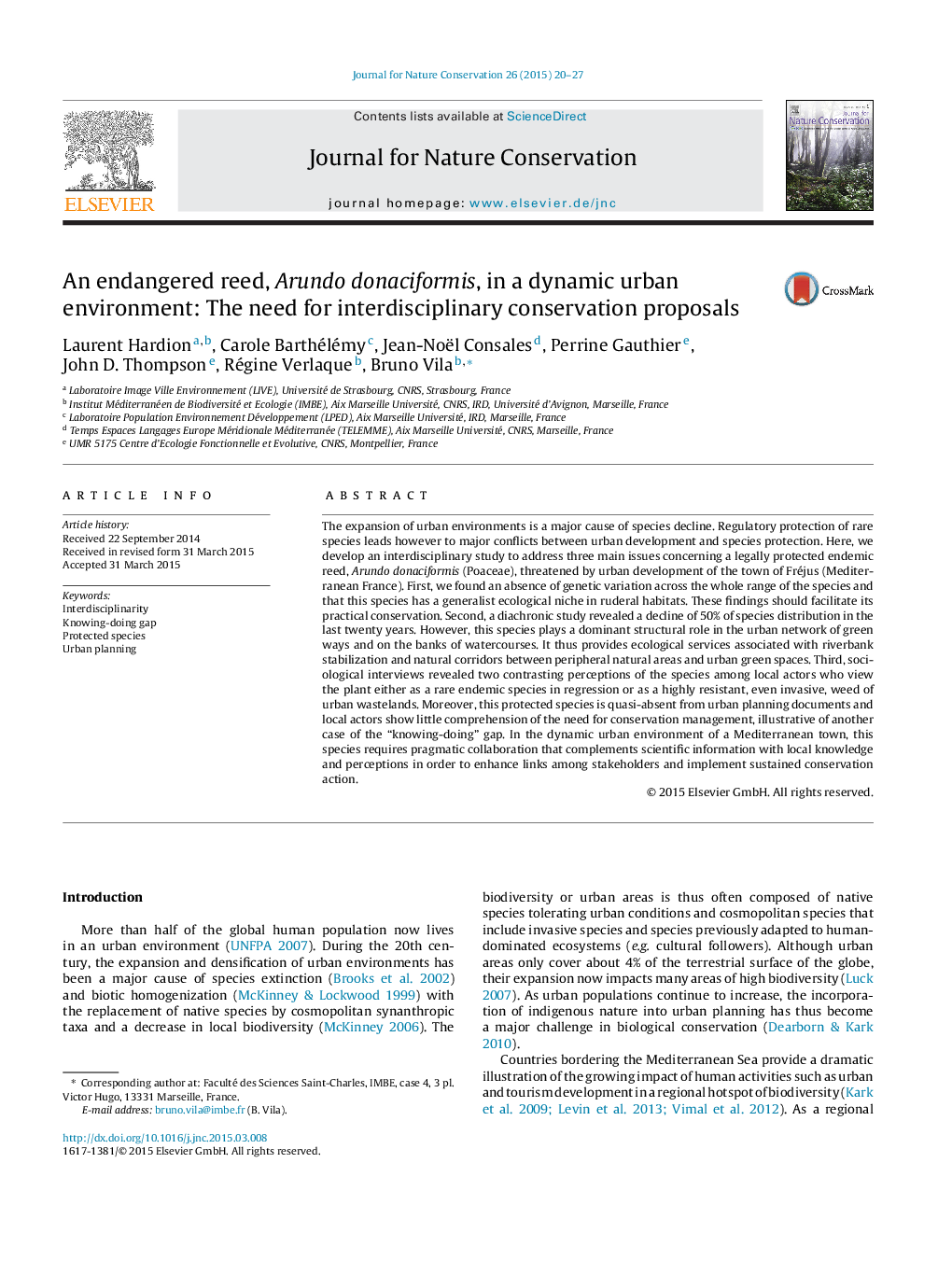| Article ID | Journal | Published Year | Pages | File Type |
|---|---|---|---|---|
| 6305434 | Journal for Nature Conservation | 2015 | 8 Pages |
Abstract
The expansion of urban environments is a major cause of species decline. Regulatory protection of rare species leads however to major conflicts between urban development and species protection. Here, we develop an interdisciplinary study to address three main issues concerning a legally protected endemic reed, Arundo donaciformis (Poaceae), threatened by urban development of the town of Fréjus (Mediterranean France). First, we found an absence of genetic variation across the whole range of the species and that this species has a generalist ecological niche in ruderal habitats. These findings should facilitate its practical conservation. Second, a diachronic study revealed a decline of 50% of species distribution in the last twenty years. However, this species plays a dominant structural role in the urban network of green ways and on the banks of watercourses. It thus provides ecological services associated with riverbank stabilization and natural corridors between peripheral natural areas and urban green spaces. Third, sociological interviews revealed two contrasting perceptions of the species among local actors who view the plant either as a rare endemic species in regression or as a highly resistant, even invasive, weed of urban wastelands. Moreover, this protected species is quasi-absent from urban planning documents and local actors show little comprehension of the need for conservation management, illustrative of another case of the “knowing-doing” gap. In the dynamic urban environment of a Mediterranean town, this species requires pragmatic collaboration that complements scientific information with local knowledge and perceptions in order to enhance links among stakeholders and implement sustained conservation action.
Related Topics
Physical Sciences and Engineering
Earth and Planetary Sciences
Earth and Planetary Sciences (General)
Authors
Laurent Hardion, Carole Barthélémy, Jean-Noël Consales, Perrine Gauthier, John D. Thompson, Régine Verlaque, Bruno Vila,
